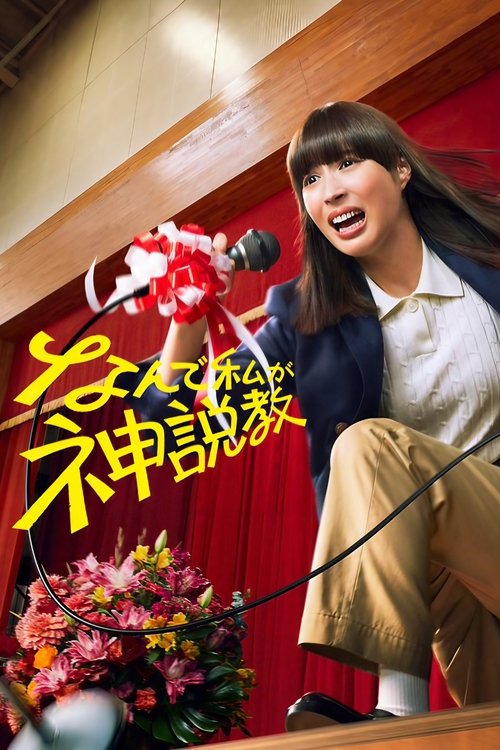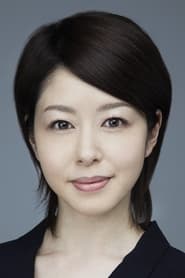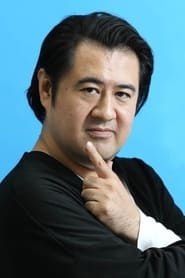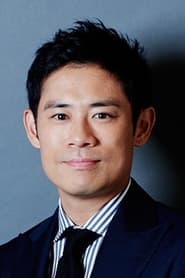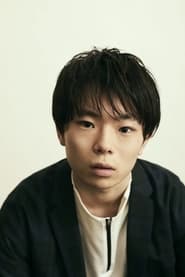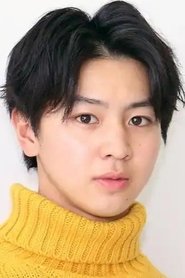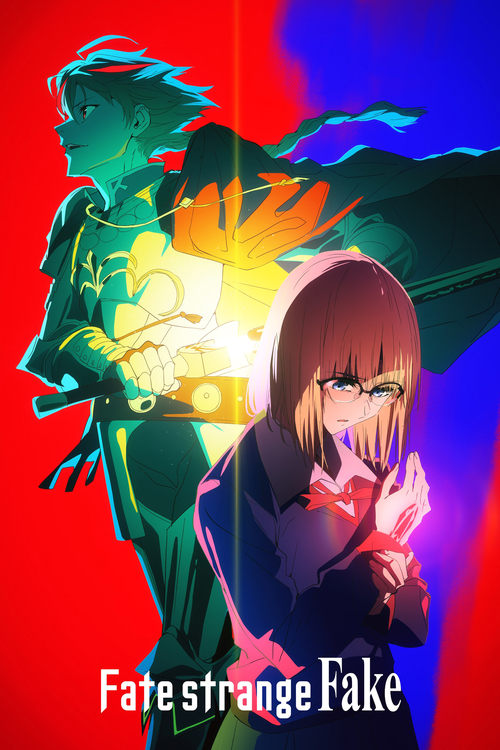
Ask Your Own Question
What is the plot?
Urumi Shizuka, the protagonist, begins the story unemployed and with no interest in teaching. To escape her unemployment, she reluctantly accepts a position as a high school teacher at Meishin Academy, a private school where the teachers follow a strict motto: "Keep a healthy distance from the students. Don't get angry, don't praise, don't get involved" .
On her first day, Shizuka tries to maintain this detached approach, avoiding emotional involvement with the students. However, she quickly encounters a bullying incident involving a student named Ayaka, who is being targeted by Hina, the leader of the first-string girls. Shizuka attempts to greet the students in a friendly manner but becomes flustered under pressure from a colleague, Urami. The students begin to look down on her, ignoring her attempts to communicate .
Shizuka's frustration builds until she loses her temper and tells Hina to "shut up, brat," which alienates Hina and her followers, making them her enemies. Ayaka, the bullied student, sees Shizuka as a potential ally and asks for her help. Despite her initial reluctance, Shizuka's competitive nature forces her to intervene, leading her to give passionate lectures to the students, something she never intended to do .
As Shizuka becomes more involved, she faces resistance not only from students but also from the school administration, which enforces the policy of emotional detachment. She stands up to unreasonable demands and power harassment from the administration, pushing back against their attempts to suppress her involvement with the students .
Throughout the season, Shizuka's relationship with the students deepens. She earns the trust of bullied students and becomes a strong ally to them. This involvement leads to new responsibilities but also triggers a broader crisis when a school reform committee attempts to expel dozens of students unfairly from the register. Shizuka fights against this injustice, using her growing influence to challenge the system .
In episode 9, Shizuka is given an impossible task by Wakisaka, a school official. Despite her anxiety and awkwardness, she continues to confront the students and administration, refusing to back down even when the students mock her or the administration pressures her. Her outbursts and passionate sermons begin to change the school culture, inspiring some students while making enemies of others .
The final episode reveals a major turning point when a list of students who were forced to drop out is leaked, exposing the school's harsh policies. This leak causes a scandal that shakes the school's administration and forces a reckoning. Shizuka's efforts culminate in a confrontation with the administration over these expulsions, where she delivers a powerful sermon that challenges the status quo and advocates for the students' rights .
By the end of season 1, Shizuka has transformed from a reluctant, disengaged teacher into a passionate preacher who not only changes her students but also begins to transform the entire school environment. Her journey is marked by key decisions to stand up against bullying, administrative injustice, and the school's culture of emotional detachment, despite her own fears and past trauma that initially made her avoid expressing her thoughts .
Related Titles
Browse All Titles →
What is the ending?
The ending of The Reluctant Preacher season 1 shows the protagonist, Urumi Shizuka, fully embracing her role as a passionate teacher who stands up to the school's rigid administration and helps transform the school environment. Despite her initial reluctance and fear of involvement, she delivers powerful sermons that inspire her students and challenge the status quo. The season closes with Shizuka maintaining her job, gaining new responsibilities, and having earned the trust and support of her students and some colleagues, signaling a hopeful future for both her and the school.
In the final episodes of The Reluctant Preacher season 1, the narrative unfolds with Urumi Shizuka confronting the escalating issues at Meishin Academy, where the teachers are expected to keep a strict distance from students and avoid emotional involvement. Shizuka, who initially took the teaching job to escape unemployment and intended to remain detached, finds herself increasingly drawn into the students' struggles, including bullying, family problems, and conflicts with the administration.
The climax begins as Shizuka openly challenges the school's motto and the administration's harsh policies, particularly their attempts to expel students en masse under questionable circumstances. In a pivotal scene, she delivers an impassioned sermon to both students and staff, breaking the school's unspoken rules about emotional distance and neutrality. This sermon is not just a reprimand but a call to recognize the humanity and struggles of the students, urging everyone to take responsibility rather than remain passive.
Following this, Shizuka faces backlash from the administration, but her courage earns her the respect and loyalty of the students, including a previously bullied student who becomes a strong ally. This alliance is crucial as it helps her stabilize the school environment and resist the administration's oppressive measures. The tension between Shizuka and the school leadership escalates but does not result in her dismissal; instead, she is entrusted with new responsibilities, indicating a shift in the school's culture.
The final scenes depict Shizuka standing confidently before her class, no longer the reluctant, fearful teacher but a committed preacher of change and empathy. Her transformation is complete: from someone who avoided conflict to a figure who uses her voice to advocate for justice and support her students. The season closes on a note of cautious optimism, with the school beginning to change and Shizuka ready to continue her mission.
Regarding the fates of main characters at the end:
- Urumi Shizuka remains at Meishin Academy, now recognized as a passionate and effective teacher who has earned new responsibilities and the trust of her students.
- The bullied student who became her ally is empowered and supported, symbolizing the positive impact of Shizuka's intervention.
- The school administration remains a source of tension but is shown to be somewhat softened or at least challenged by Shizuka's actions.
- Other teachers and students are depicted as gradually opening up to more engagement and emotional honesty, influenced by Shizuka's example.
This detailed ending highlights the show's core themes of overcoming fear, the importance of standing up for others, and the transformative power of honest communication within a rigid institutional setting.
Is there a post-credit scene?
Yes, The Reluctant Preacher, Season 1 (2025) does have a notable post-credits scene. After the main episode ends, the scene shows slanderous writings about the protagonist, Reimi Shizuka, pasted on the school hallway walls. The papers read "Reimi Shizuka is a murderer," creating a chilling and ominous atmosphere. This scene follows Shizuka's emotional announcement to her class about a student, Miyazawa, dropping out, which she cannot fully explain, leading to her apologizing tearfully. The post-credits scene left viewers unsettled and sparked significant social media discussion due to its disturbing and suspenseful tone.
This scene serves as a dark coda to the episode, emphasizing the social backlash and mystery surrounding Shizuka's reluctant role as a preacher and the turmoil at the school. It is not a traditional post-credits teaser but rather a final, haunting image that deepens the narrative tension.
What is the nature of the bullying incident that Shizuka faces on her first day as a teacher?
On her first day, Shizuka encounters a bullying incident in her class that sets the tone for the series. Feeling burdened and reluctant, she breaks from the usual teacher's restraint and directly confronts the bully with a blunt 'Shut up, stop being an ass,' silencing the student in disbelief. This moment highlights her internal struggle and unwillingness to tolerate disrespect, despite wanting to quit teaching.
How does Shizuka's relationship with the other teachers at Meishin Academy affect her experience?
Shizuka is surrounded by a group of challenging colleagues: Urami, a math teacher with a strong sense of justice; Seira, an English teacher who values her private life; Oguchi, the gentle head of grade; and Moriguchi, a calm but data-obsessed political and economics teacher. Their distinct personalities and approaches to teaching contribute to Shizuka's discouragement and sense of being out of place, complicating her efforts to adapt to her new role.
What is the school reform committee's policy at Meishin Academy, and how does it impact Shizuka?
The school reform committee, led by vice principal Shinjo, enforces a policy of 'maintaining a good distance from students, not getting angry, not praising, and not giving advice.' This approach treats the school as a service industry aimed at pleasing students and avoiding trouble. Shizuka initially follows this policy to keep a peaceful teaching life but finds herself conflicted as she becomes involved in her students' problems and feels compelled to give them lectures despite her reluctance.
What motivates Shizuka to become a teacher despite her reluctance?
Shizuka, a 28-year-old who had been a NEET for two years, becomes a high school teacher primarily to escape unemployment and rejoin society, persuaded by her mother and friend. She has no particular passion for teaching and initially wants to avoid responsibility and conflict, aiming for a trouble-free job. However, her innate competitiveness and sense of justice push her to engage more deeply with her students' issues.
How does Shizuka's approach to teaching evolve throughout the series?
Although Shizuka starts with a detached approach, following the school's policy to avoid involvement, she gradually becomes more engaged with her students' troubles. Despite her desire to keep a low profile, she cannot let students take her lightly and ends up giving them 'lectures' she internally resents having to deliver. Her internal conflict between wanting to quit and feeling responsible drives her development as a teacher who stands up for her students and confronts challenges head-on.
Is this family friendly?
The TV show "The Reluctant Preacher," season 1 (2025), is a school drama with comedic elements centered on a reluctant high school teacher who becomes passionately involved in her students' lives and school issues. It is generally suitable for a family audience but may not be fully appropriate for very young children or highly sensitive viewers.
Potentially objectionable or upsetting aspects include:
- Bullying and school conflict: The show deals with bullying among students and the protagonist's confrontations with school administration, which may involve tense or emotional scenes.
- Emotional intensity: The main character struggles with past trauma and expresses strong emotions, including anger and passionate lectures, which might be intense for sensitive viewers.
- Themes of family problems and romance: Some storylines touch on family issues and adolescent romance, which could be complex or sensitive topics for younger children.
- Mild language or confrontations: The protagonist sometimes gives "outrageous sermons" and stands up to unreasonable authority, which may include heated dialogue.
There is no indication of explicit violence, strong language, or adult content, but the emotional and social challenges portrayed might require parental guidance for younger or sensitive children.

